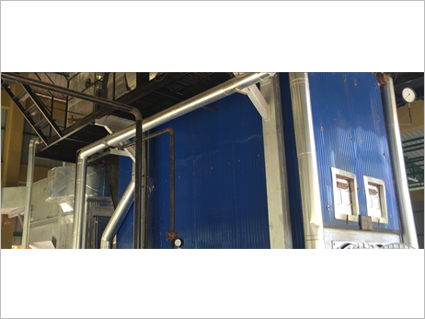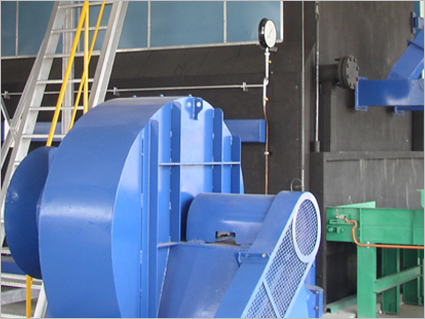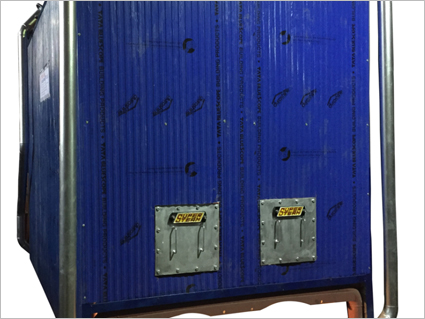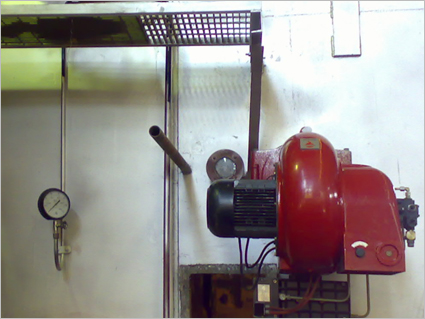 |
 |
 |
 |

We are one of the leading manufacturers and suppliers of combination boilers and other associated products. At Super Steam Boilers Pvt Ltd, we are determined to enhance our business with better customization each time in order to achieve sustainable growth in the field of manufacturing combination boilers. To manufacture and supply best quality combination boilers has been our policy since our inception. The combination boilers and related products are manufactured at our unit by through process of continuous evolution, to offer the best products to our customers. Developing a problem solving attitude has been our preference so that we own the responsibility for our actions. The agenda which we strictly follow in all our production activities includes random and continuous inspection of all the raw materials procured from noteworthy vendors from the market.
Combination boilers, also known as combi boilers, are a type of central heating boiler that provide both hot water and heating on demand without the need for a separate water tank or cylinder. Combination boilers heat water directly from the mains supply as and when it is needed. They do not store hot water in a tank, so there is no need for a separate cylinder or storage tank. When a hot water tap is turned on, the boiler will heat the water and deliver it to the tap. The cost of a combination boiler can vary depending on the type of boiler, the size of the property, and the complexity of the installation. Regular maintenance of a combination boiler is essential to ensure that it continues to operate safely and efficiently. This includes annual servicing and checks, as well as regular checks of the boiler's pressure and water levels.
Advantages :Installation: Installation of a combination boiler should be carried out by a qualified engineer, who will ensure that the boiler is installed correctly and safely. Maintenance: Regular maintenance of a combination boiler is essential to ensure that it continues to operate safely and efficiently. This includes annual servicing and checks, as well as regular checks of the boiler's pressure and water levels. Cost: The cost of a combination boiler can vary depending on the type of boiler, the size of the property, and the complexity of the installation. It is important to get a range of quotes from qualified engineers before making a decision on which boiler to purchase.
Combination boilers, also known as combi boilers, are a popular choice for heating and hot water in many households. They are called combination boilers because they combine two functions: heating water for radiators and providing hot water for taps and showers.
Unlike traditional boilers, which store hot water in a tank, combination boilers heat water on demand as it is needed. This means that they are more energy-efficient than traditional boilers, as they don't waste energy heating water that is not going to be used.
Combination boilers are also smaller and more compact than traditional boilers, which makes them ideal for homes with limited space. They can be mounted on the wall and take up very little space, leaving more room for other things.
Another advantage of combination boilers is that they provide instant hot water. As soon as you turn on the tap or shower, the water is heated and delivered to the outlet. This means that you don't have to wait for hot water to be heated and stored in a tank, which can be especially useful if you have a large household with several people needing hot water at the same time.
However, there are some drawbacks to combination boilers that you should be aware of. For example, they may not be suitable for homes with high hot water demand, as they may struggle to keep up with demand during peak usage times. Additionally, if there is a problem with the boiler, you may be left without both heating and hot water until the issue is resolved.
Overall, combination boilers are a popular choice for many households due to their energy efficiency, compact size, and instant hot water. However, it's important to consider your household's hot water demand and choose a boiler that is suitable for your needs.
Gas-fired and oil-fired combination boilers are types of heating systems that provide both hot water and central heating for residential or commercial properties. These boilers are commonly referred to as combi boilers, and they are popular because they are efficient and take up less space than traditional boilers.
Gas-fired combination boilers are fueled by natural gas, which is delivered to the property through a pipeline. These boilers heat water directly from the mains supply, and they do not require a hot water storage cylinder or cold water tank. Gas-fired combination boilers are popular because they are highly efficient and provide hot water on demand. They are also environmentally friendly, producing fewer emissions than oil-fired boilers.
Oil-fired combination boilers are similar to gas-fired boilers, but they use oil as their fuel source. The oil is stored in a tank, which is usually located outside the property. Oil-fired boilers heat water directly from the mains supply, and they do not require a hot water storage cylinder or cold water tank. Oil-fired combination boilers are popular in areas where natural gas is not available, and they are generally less expensive to install than gas-fired boilers.
Both gas-fired and oil-fired combination boilers are highly efficient, with some models achieving up to 98% efficiency. They are also compact and take up less space than traditional boilers. However, they do require regular servicing to maintain their efficiency and ensure that they are working safely.
When choosing between gas-fired and oil-fired combination boilers, it is important to consider the availability of fuel in your area, as well as the cost of installation and maintenance. It is also important to choose a reputable and qualified installer to ensure that the boiler is installed correctly and safely.